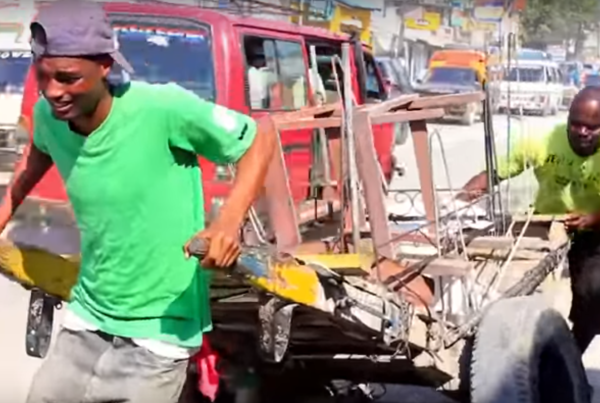Our Community
I am going to write this update, as well as the next update or two, about the community that we have helped to create, expand and improve. The foundation is built on this community; we created it. We are its backbone and most importantly, we need it to function well in order for the JRF to be successful and sustainable.
Since starting the Joan Rose Foundation, community is a term that I have generally been disdainful of. I felt that being welcomed, respected and assisted by the “community” in which one works was a fantasy of academics and the naïve, not a reality. My experience has been that the community, or neighborhood, one works in is just a bunch of people looking to get theirs.
What I have come to realize is that our community is not made up of the people who live in the same neighborhood as the JRF. Our community is made up of our kids, our employees, their families and Good Threads employees.
We have created this community and we are the backbone of this community. Without us it would cease to exist. This community is made up of 6 8 families, or 320 people. We are the primary source of household income for 33 of these families. Even the families who earn their household income elsewhere depend on us. We are in most ways their social safety net. We substantially improve their children’s quality of life, health, education and opportunities. In doing this we take several huge financial burdens off their shoulders, primarily medical costs, school uniforms and most importantly, their child’s biggest and most expensive meal of the day. We spend a little more than half the average income per household, of women not working for Good Threads, on each child, every month.
We did not realize it, but the creation of a functioning community is what we have been after this whole time. Since day one, we have been about providing our children with the opportunity to succeed. Giving an impoverished, marginalized street kid the “opportunity to succeed” involves a hell of a lot more than educating them. Education is one of the first and arguably most important steps, but if you are only offering an education, you are not going to have, what we consider, an acceptable success rate. They can move, they can quit to work, their parent can keep them at home to work, they can get sick and die, they can get swallowed up by the streets or fall victim to predators. Many of these problems can be avoided if you can make the parent into an active ally. To do this you need to make the parent feel like a part of the community and, more importantly, you need to tie them to the community, ideally with a job.
One big obstacle for us is that most of our children come from poor migrant families. This generally means the family is transient. Obviously if a child moves away you can no longer “give them the opportunity to succeed”. If you can give the mother a job, you create a much stronger tie to the foundation and area. To date we have never had a parent, who earned money through the JRF or Good Threads, move to a different area.
Another obstacle is that some parents will have their child do house work instead of coming to the foundation or will not send the child to school. Our ability to influence these type of decisions is greatly increased if the parent depends on us for their household income.
In the next update I will write about why forming a strong community is important to the long term sustainability of the Joan Rose Foundation and how that community has begun to interact independent of the JRF.
As always thank you all for your continued support, none of this would be possible without you,


